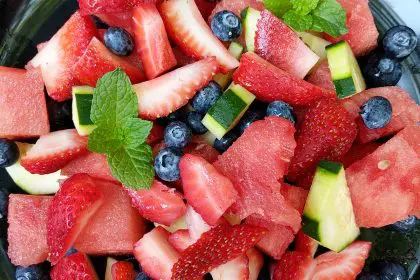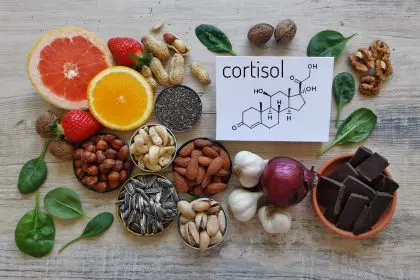Inflammation serves as the body’s natural defense mechanism against injury and infection, but when it becomes chronic, it can lead to serious health complications including arthritis, heart disease and autoimmune disorders. While traditional medications like NSAIDs and corticosteroids reduce inflammation, they often bring unwanted side effects.
Recent research shows that dietary choices play a crucial role in either increasing or decreasing inflammation. Processed foods and refined sugars promote chronic inflammation, while whole, nutrient-rich foods help reduce it naturally. A well-balanced diet featuring anti-inflammatory ingredients can promote healing, boost immunity and prevent long-term health complications.
The power of culinary medicine
Turmeric stands out among natural anti-inflammatory agents for its remarkable potency. Its active compound, curcumin, matches the effectiveness of some anti-inflammatory drugs without harsh side effects. The spice blocks inflammatory pathways and reduces joint pain, particularly when combined with black pepper for enhanced absorption. Adding turmeric to roasted vegetables, smoothies or warm golden milk creates delicious ways to incorporate this powerful spice into daily meals.
Berries pack a powerful punch against inflammation through their high concentration of antioxidants called flavonoids. These compounds fight inflammation at the cellular level while strengthening the immune system through vitamin C content. Regular consumption of blueberries, strawberries, raspberries and blackberries protects against age-related cognitive decline and heart disease.
Ocean’s healing gifts
Fatty fish like salmon, mackerel and sardines provide essential omega-3 fatty acids that significantly reduce inflammation. Regular consumption helps decrease inflammatory molecules and eases joint stiffness. Studies show that omega-3s can improve symptoms of autoimmune diseases and support brain function. For those who avoid fish, plant-based alternatives like flaxseeds and walnuts offer similar benefits.
The green revolution
Dark leafy greens emerge as powerful inflammation fighters, loaded with essential nutrients that combat chronic inflammation. Spinach, kale and Swiss chard deliver high amounts of vitamin K, which helps regulate inflammatory responses while supporting gut health through fiber content. Their antioxidants neutralize harmful free radicals, making them essential for anyone seeking natural inflammation relief.
Ancient remedies validated
Ginger brings natural pain relief through compounds called gingerols and shogaols. Research shows it helps reduce muscle soreness, support digestive health and provide relief from various types of pain. Fresh ginger can be added to teas, soups or stir-fries for a spicy and soothing anti-inflammatory boost.
Nuts and seeds offer concentrated sources of anti-inflammatory compounds. Almonds, walnuts, flaxseeds and chia seeds combine healthy fats, fiber and antioxidants to lower inflammation markers while supporting heart health and improving cholesterol levels.
Mediterranean influences
Extra virgin olive oil, a cornerstone of the Mediterranean diet, contains compounds that work similarly to ibuprofen. Its polyphenols and oleocanthal help reduce C-reactive protein levels, a key marker of inflammation. Regular consumption protects against heart disease and improves brain function while enhancing nutrient absorption from vegetables.
Beneficial beverages and treats
Green tea provides powerful anti-inflammatory benefits through its high concentration of antioxidants, particularly epigallocatechin gallate (EGCG). Regular consumption helps fight oxidative stress while supporting overall metabolic health and lowering the risk of chronic diseases.
Dark chocolate containing at least 70% cocoa delivers anti-inflammatory benefits through its rich antioxidant content. These compounds help reduce inflammatory markers while supporting brain function and cardiovascular health, making it a guilt-free addition to an anti-inflammatory diet.
The natural approach
While medications play an important role in managing acute inflammation, natural food alternatives offer safe, long-term solutions without side effects. The body responds differently to whole foods compared to synthetic medications, often providing more comprehensive and sustainable relief. These natural alternatives work with the body’s own healing mechanisms, creating a foundation for better long-term health outcomes rather than just treating symptoms.
Making mindful dietary choices extends beyond inflammation reduction, creating ripple effects throughout the body’s systems. Each anti-inflammatory food brings its own set of additional benefits, from improved cardiovascular health to enhanced cognitive function. By incorporating these powerful foods into daily meals, individuals can effectively manage inflammation while supporting their body’s natural healing processes, leading to improved energy levels, better immune function and an overall higher quality of life.
This story was created using AI technology.

















